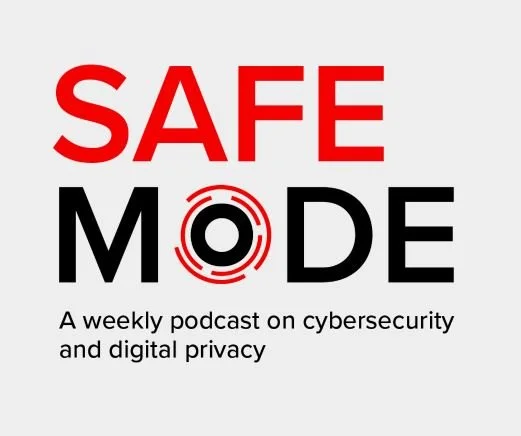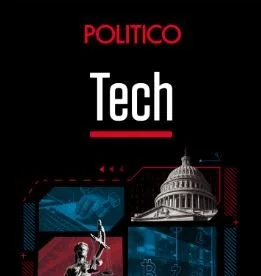Political consultants and vendors are frequent targets that bad actors use to breach campaigns online.
In a recent report on third party risk in political campaigns, the Center for Campaign Innovation and Defending Digital Campaigns highlight key areas where political professionals should focus to avoid being the weak link in a campaign's cybersecurity. Political consultants and vendors are frequent targets that bad actors use to breach campaigns online. It's important that you take steps to protect yourself and your clients.
The Cybersecurity and Infrastructure Security Agency has a key role to play in the election “off-season” to help state and local officials safeguard their systems against emerging threats in advance of upcoming races in 2025 and 2026, according to former elections lead Kim Wyman.
The end of campaign season offers a chance to reflect what went right and wrong—whether you’re a candidate or a nonprofit trying to protect them.
Michael Kaiser, CEO and president of Defending Digital Campaigns (DDC), a nonpartisan org providing free or discounted cybersecurity services to political campaigns, is using the election “off season” to consider the threats fielded by 2024 political teams.
While some Americans feared deep fakes’s deep electoral impact, many cyber incidents that emerged, Kaiser said, were of the “classic” variety—familiar threats like denial-of-service attempts, account compromises, and phishing.
Defending Digital Campaigns (DDC), a nonprofit, non-partisan and non-aligned C4 organization that provides free or low-cost cybersecurity resources to political campaigns, today announced that since 2019 it has donated over $7.9M in products and services to a range of campaigns, including presidential and down-ballot. The nonprofit, alongside its partner network — which includes Cloudflare, Google, Microsoft and Yubico — is unveiling the results of its extensive national efforts to protect campaigns.
Chinese state-linked influence operation (IO) Spamouflage has become more aggressive in its efforts to influence U.S. political conversations ahead of the 2024 presidential election. This includes expanding its use of personas that impersonate U.S. voters on social media platforms and spreading divisive narratives about sensitive social issues in the U.S. Through Graphika’s ATLAS intelligence reporting, we identified 15 Spamouflage accounts on X and one account on TikTok claiming to be U.S. citizens and/or U.S.-focused peace, human rights, and information integrity advocates frustrated by American politics and the West. We also identified a cross-platform Spamouflage persona operating as an inauthentic U.S.-focused media outlet. In the run-up to the 2024 election, these accounts have seeded and amplified content denigrating Democratic and Republican candidates, sowing doubt in the legitimacy of the U.S. electoral process, and spreading divisive narratives about sensitive social issues including gun control, homelessness, drug abuse, racial inequality, and the Israel-Hamas conflict. This content, some of which was almost certainly AI-generated, has targeted President Joe Biden, former President Donald Trump, and, more recently, Vice President Kamala Harris. Despite attempts to masquerade as U.S. users and engage with hot-button issues, the accounts failed to garner significant traction in authentic online communities discussing the election. The rare exception was an inauthentic media outlet operating on TikTok which posted a video in July that has received 1.5 million views to date.
Two years before Iranian hackers breached Donald Trump’s campaign this summer, they used a similar ploy to target a former administration official and onetime confidant of John Bolton, Trump’s national security adviser and prominent Iran critic.
After infiltrating the person’s email account, the hackers sent what seemed like a harmless request to a group of fellow US-based Iran hawks, asking them to review a supposed book the person was writing about Iranian and North Korean nuclear programs.
“I am close to finishing the manuscript and have begun asking experts like yourselves to review the chapters,” read the email from June 2022, a copy of which was obtained by CNN.
Political candidates and their top campaign advisers are not the only ones who need to brace for foreign nations’ hackers breaching their defenses — family and friends of the candidates are at risk as well.
Sunny Consolvo, who heads Google’s Security and Privacy User Experience team, said Tuesday that relatives and friends of candidates need expert cybersecurity protection akin to what candidates on the ballot have adopted.
“Vendors, in fact, often even the family or close friends of the candidate and possibly senior staff, are often targeted by several of these attackers we talked about,” Ms. Consolvo said on a webinar sponsored by Defending Digital Campaigns. “And so I think it makes a lot of sense for people who are supporting campaigns — whether or not they’re officially part of the campaign or on the campaign’s Workspace — to make sure their settings are at the level that are recommended for political campaigns as well.”
Ms. Consolvo, a Google researcher for more than 12 years, said candidates, campaigns and the people orbiting around them are all much bigger targets than the general public for foreign adversaries, activist hackers and cybercriminals.
State-sponsored attackers target campaigns for disruption and acquire inside information, while hacktivists have individual political agendas and cybercriminals seek financial gain, according to Google.
“From federal to local races, campaigns of all sizes face very real cybersecurity threats,” Ms. Consolvo said. “In fact, campaigns face an outsized risk of being attacked compared to many organizations in the general population.”
Google officials say they have already stopped some state-sponsored attacks on federal candidates.
Google’s Threat Analysis Group said earlier this month it thwarted an Iranian hacking group’s efforts to breach the campaign systems of former President Donald Trump and President Biden in May and June.
The Iranian hackers targeted “roughly a dozen individuals,” according to Google’s TAG, which included people outside the walls of the government’s and the campaigns’ networks.
Google said some of the people were former government officials, “individuals associated with the respective campaigns,” and that the hackers sought to “log in to the personal email accounts of targeted individuals.”
The Big Tech giant is eager to raise alarm about hackers targeting candidates and campaigns before Election Day, and it wants those affiliated with campaigns to know there is still time to bolster their cyber defenses.
Washington CNN-Taylor Swift didn’t endorse former President Donald Trump last weekend. Ryan Reynolds wasn’t photographed wearing a pro-Kamala Harris shirt. And the Communist Party USA never backed President Joe Biden’s now-defunct campaign.
But these false claims about the 2024 campaign, and dozens of other posts with similar fake endorsements, have exploded on social media in the run up to the election, according to researchers at the News Literacy Project, a nonpartisan education group that launched a new database Thursday chronicling more than 550 unique instances of election-related misinformation.
In June, amid a bitterly contested Republican gubernatorial primary race, a short video began circulating on social media showing Utah Gov. Spencer Cox purportedly admitting to fraudulent collection of ballot signatures.
The governor, however, never said any such thing and courts have upheld his election victory.
The false video was part of a growing wave of election-related content created by artificial intelligence. At least some of that content, experts say, is false, misleading or simply designed to provoke viewers.
With Election Day rapidly approaching in the United States, the Trump campaign claims that the first major hack-and-leak operation has arrived. After a handful of U.S. media outlets received leaked material on vice presidential candidate JD Vance, the Trump campaign said it had been the victim of an Iranian hacking operation. On this episode of Safe Mode, CyberScoop senior reporter Tim Starks sits down with host Elias Groll to discuss what we know about the operation and its significance. Also on this episode, John Hammond of Huntress provides a technical deep dive on how an errant CrowdStrike software update managed to break large parts of the internet.
The POLITICO Tech podcast is your daily download on the disruption that technology is bringing to politics and policy, Episode 878
BUCKLE UP — After a week running around Las Vegas for Black Hat and DEF CON, Maggie and I thought we’d have some time to relax, but no.
The hack and leak operation aimed at former President Donald Trump’s presidential campaign is raising concerns around the cybersecurity of campaigns — though according to experts, there should have been red flags long ago.
Donald Trump’s presidential campaign was hacked and has attributed the exfiltration of internal campaign communications to Iranian operatives, a spokesperson said Saturday.
Politico first reported the news, when it began receiving emails from an anonymous account that contained the internal conversations. The former president’s campaign manager also alluded to a Microsoft report that said Iranian operatives attempted to access an account belonging to a former presidential candidate, which the company had declined to name.
News of a reported cyberattack at the Trump campaign is likely just the beginning of what promises to be a hectic, unpredictable cybersecurity run-up to November's election.
Why it matters: Since 2016's Russian-backed pilfering of the Hilary Clinton campaign's private emails, the specter of foreign meddling in U.S. elections has returned every four years, fueling mistrust in the political process.
Political campaigns need to prioritize cybersecurity ahead of this fall's election, a panel of experts warned at a recent summit at Google in Fulton Market.
Why it matters: With the rise of AI, deep fakes and more, this election cycle may be more vulnerable to cyberthreats than any previously, non-partisan, non-aligned Defending Digital Campaigns coalition president Michael Kaiser tells Axios.
JULY 24, 2024, WASHINGTON – With the 2024 election only a few months away, Defending Digital Campaigns (DDC), a nonprofit, non-partisan and non-aligned C4 organization that provides free or low-cost cybersecurity resources to political campaigns, yesterday hosted with Google the Campaign Security Summit: Protecting High-Risk Users in Chicago. Michael Kaiser, president and CEO of Defending Digital Campaigns, provided opening remarks, and George P. Bush, managing partner at Pine Cove Capital, LLC, spoke on a panel. The event is part of the Campaign Security Project in which Google and DDC are hosting a series of regional summits for high-risk election-related stakeholders.
Attackers are targeting campaigns and political parties more than election infrastructure, according to a recent report from Google.
Michael Kaiser knows that cybersecurity is often not the top priority of a political campaign—or at the very least, it ranks below winning.
That’s why Kaiser’s nonprofit, Defending Digital Campaigns (DDC), provides free and low-cost defenses like email authentication, hardware keys, and website protection to political teams that have data, credentials, and money at stake.
But free cybersecurity isn’t as easy a sell as it sounds. Understaffed campaigns move quickly, and cyber is one more item on a lengthy agenda.
“You have to make it so easy—which is what we try and do—so that it doesn’t take too much time [away] from winning,” Kaiser, DDC’s president and CEO, told IT Brew.
MILWAUKEE, July 15, 2024 – AI generated content of political candidates is a big concern for voters this election cycle.
That was the message of Microsoft Tech Advisors Ashley O’Rourke and Ginny Badanes during a Monday bipartisan presentation on AI disinformation at the GOP Convention here until Thursday.
Citing a survey conducted by Defending Digital Campaigns and the computer software company Yubico, O’Rourke said that 78% of voters are concerned about AI generated content being used to impersonate a political candidate.
“It’s causing [voters] to distrust potentially authentic content and authentic communications,” O’Rourke said.
The two representatives gave a bipartisan presentation hosted by the non-profit advocacy group All In Together.
Badanes cautioned that if not properly addressed, the potential impact of AI deepfakes on the upcoming presidential election could be devastating.
Google has announced a significant upgrade to its Advanced Protection Program (APP), offering high-risk users the option to enroll with passkeys instead of physical security keys.
APP offers the highest level of Google account security, specifically designed for individuals like journalists, public figures and activists who face a heightened risk of cyberattacks.
Archive
- March 2025 1
- December 2024 3
- September 2024 1
- August 2024 10
- July 2024 8
- June 2024 2
- May 2024 4
- March 2024 2
- November 2023 2
- June 2021 1
- February 2021 3
- January 2021 1
- September 2020 1
- May 2020 1
- April 2020 1
- February 2020 7
- January 2020 12
- December 2019 3
- November 2019 4
- October 2019 3
- July 2019 1
- May 2019 3
- April 2019 1





















